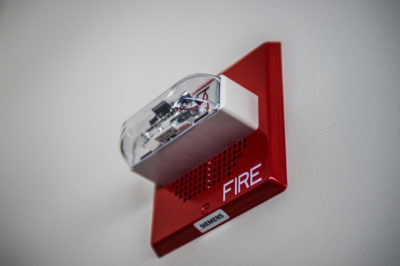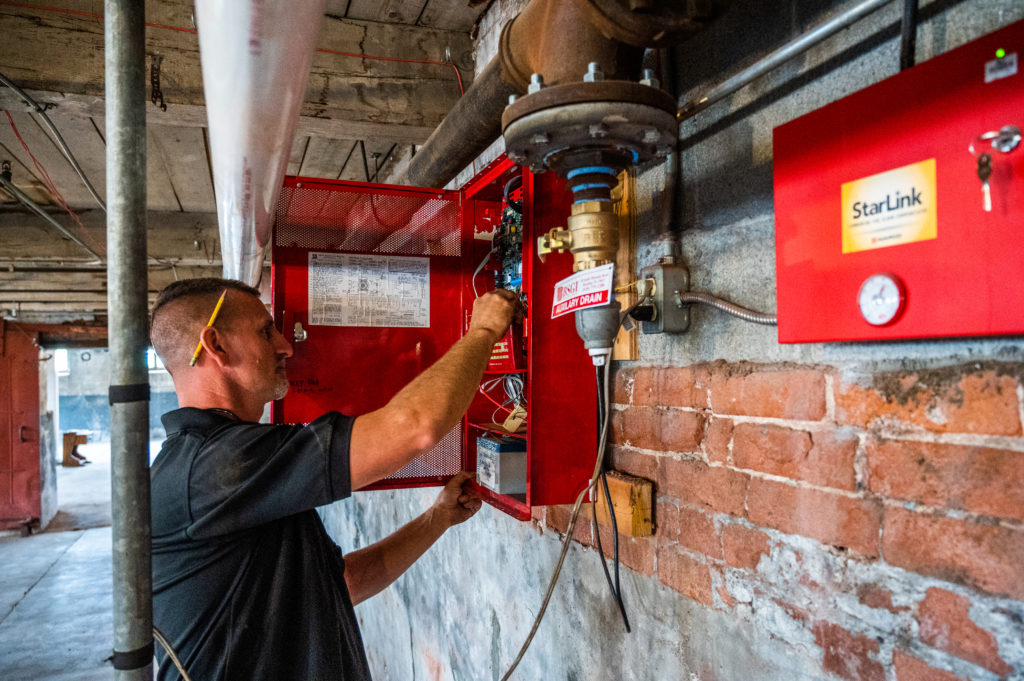Fire Alarm Owner Information
Fire Alarm System Owner Information and Responsibilities
This document highlights the requirements and best practices to maintain your Fire Alarm System as per the Pennsylvania Uniform Construction Code, International Building Code, and Special Local Jurisdiction requirements. Click to download the pdf or continue to read below.

Introduction to Your Fire Alarm Systems Responsibilities & Requirements
Your new Fire Alarm System is a required system as per the PA Uniform Construction Code. This Code includes the adoption of other codes, including the International Building Code (IBC) and the National Fire Alarm and Signaling Code (NFPA 72).
As per NFPA 72, the owner or owner’s representative is responsible for your fire alarm system and includes the following responsibilties:
1 . Annual Testing and Inspections | These include one functional inspection and one visual inspection. These are to be completed at 6-month intervals and can be a combination of both functional and visual inspections during each visit.
• These inspections can be done by Berkshire Systems on a billable basis or provided as part of an Inspection Agreement.
2 . Monitoring by Listed and Approved Central Supervising Station | This includes a Communicator that reports system events that include Alarm, Trouble, and Supervisory conditions to the Supervising Station. In turn, the Supervising Station responds with the proper response, such as notifying the owner and/or the 911 Dispatch Center.
• The cost of the monitoring can be provided by Berkshire Systems and billed annually or included in an Inspection Agreement.
3 . The Fire Alarm System Maintenance & Documentation is required to be maintained by the owner or owner’s representative. This documentation includes the following:
• Owner’s Manual and Manufacturer’s published instructions covering all system equipment.
• Record (As-Built) drawings. These are the drawings and diagrams used to install your system.
• A completed Record Completion form. This is a record documenting the system and its components, and is signed by the Service Company, Installer, and Authority-Having Jurisdiction. This is your system’s birth certificate and shall be maintained and updated throughout the life of your system.
• A copy of site-specific system software.
• System Inspection, Testing, Maintenance and Alteration/Addition documentation.
The above documentation shall be maintained in the required system Document Cabinet and shall be accessible to the Authority-having Jurisdiction.
4 . The owner is responsible for the proper operation of the system | This includes initiating repairs when an impairment occurs.
5 . All records for maintenance, inspection, and testing shall be maintained for no less than one year from the date of service and made available to the Authority-having Jurisdiction.
If your facility is located in the CITY OF LANCASTER, MANHEIM TOWNSHIP, or the CITY OF READING, your Fire Alarm System is required to be listed by a Nationally-Recognized Testing Laboratory (NRTL) such as Underwriters Laboratories (U.L.).
This requirement includes:
• INSPECTIONS & MONITORING (as referenced above)
• RUNNER SERVICE – whereby BSGI must respond to an Alarm or Supervisory condition within 2 hours and a Trouble condition within 4 hours to ensure the system is returned to normal operation.
• BSGI is notified of these conditions directly from the Central Station.
• BSGI contacts you (or your call list) to determine if we are needed on-site.
• CERTIFICATION of the entire system by a NRTL.
• This may also include a visit from the NRTL to inspect your system and your service provider.








